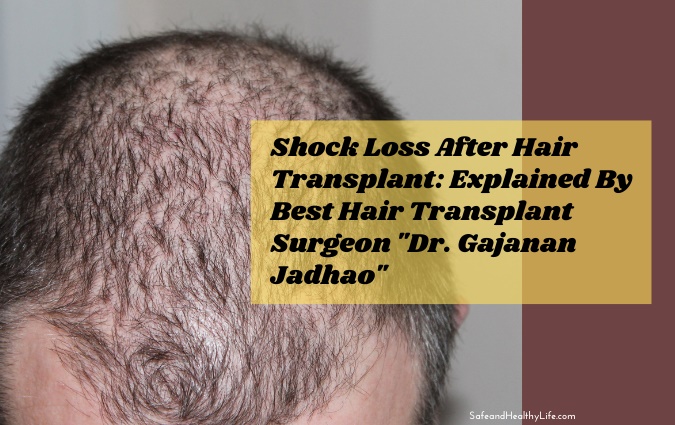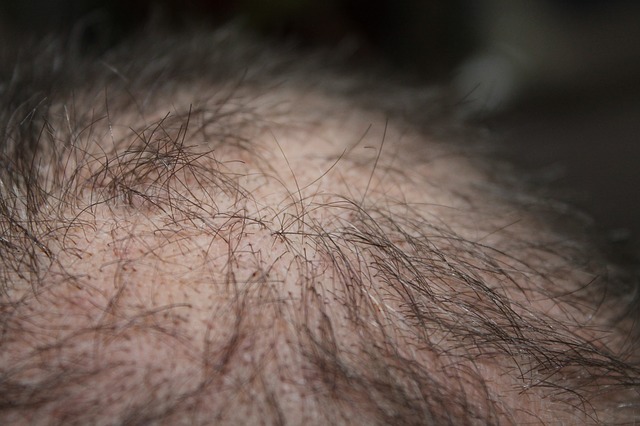
The term “shock loss” after a hair transplant refers to when the head scalp has been subjected to a shock during the procedure, resulting in hair loss.
Hair is transplanted from one part of the scalp to another during the process; however, if the treatment is not performed correctly, the patient may experience shock loss following the surgery due to problems or side effects.
“Shock loss after a hair transplant affects both the donor and receiving areas; both the original and transplanted hair will fall out during this event. Shock loss can occur for a variety of causes, and the patient may be unhappy if his or her natural hair begins to fall out, especially because the surgery’s primary goal is to stop the hair from coming out.”- Says Dr. Gajanan Jadhao who is known for best hair transplant in Pune.
“However, in many situations, this hair will regrow; also, there are a variety of treatments to lessen or prevent shock loss.”- Added Dr. Jadhao.
Is there a distinction between hair loss and shock loss?
It’s vital to understand that shock loss differs from natural hair loss, which commonly occurs after surgery. You will most likely lose the freshly transplanted hair within the operation after a few weeks; this is a normal part of the hair development process and is not a major issue because the transplanted hair will grow back after a few weeks.
Shock loss, on the other hand, will impact both the transplanted and native hair. Shock loss can occur due to the medical team’s lack of experience, but it can also occur if the hair follicles in the donor area have begun to be impacted by the hormone “Dihydrotestosterone” (DHT).
So, what causes shock loss?
During an FUE transplant, hair follicles are extracted from the donor area and transplanted into the recipient area; however, mistakes can occur at this point, causing the grafts to be damaged and lost, and they will no longer be able to generate new hair.
Furthermore, some hair transplant methods are more likely to trigger shock loss than others.
In other words, the strip approach may produce shock loss if the doctor tries to take a large number of grafts in one session and fails to close the strip location properly, resulting in permanent hair loss in this area.
Also, if the follicles have been impacted by the “Dihydrotestosterone” hormone (DHT), which is the cause of genetic hair loss, shock loss may occur in the receiving area of the head scalp.
These follicles will fall over time; however, when the follicles are removed and then transplanted again, the rate of fall will accelerate.
Furthermore, if the hair transplant surgeon places the grafts too close together or makes the channels too big, the surrounding natural hair may come out following the procedure.
For all of these reasons, selecting the best clinic for a hair transplant is always highly suggested to achieve satisfactory outcomes.
Remember, we’re talking about cosmetic surgery, which necessitates experience and precision to give the patient the desired result.
What is the difference between transient shock loss and permanent shock loss?

Photo Credit: Pixabay
When it comes to shock loss, there are two sorts to consider: permanent and temporary. Temporary shock loss can occur for a variety of reasons, but the key feature is that the hair will regrow after a period of time.
The following are the most common types of temporary loss:
Temporary or transient shock loss
During any hair transplantation, transient hair loss may occur after transplanting hair into locations with a small amount of poor hair.
The natural hair that surrounds the receiving area may experience a shock once the grafts are transplanted in the head scalp (receiving area), however, this shock is transient and frequent during hair transplant surgery.
After employing the strip procedure, there might be a shock loss.
Part of the donor area -which is on the rear side of the head scalp- will be removed during a hair transplant surgery utilizing the strip method by cutting the strip and producing new grafts that will be ready for transplantation.
When the strip is removed, the doctor should suture the wound shut. While sealing the incision, this area may experience a shock, which will disable blood flow and produce a shock in the surrounding area; as a result, the hair that surrounds the donor area may fall out, but this is just temporary, and the hair will grow back after the wound is healed. This form of dropping might either occur as spots or affect the entire strip.
What does it mean to have permanent shock loss?
This sort of shock occurs when the grafts are permanently shocked, preventing them from producing new hair.
Furthermore, when the transplanted grafts are damaged by the “Dihydrotestosterone” hormone responsible for hair loss and baldness, this shock occurs, indicating that they are already at risk of falling in the coming years.
Finally, the transient shock might occur as a result of harming key structures, such as hair roots, when extracting grafts from the donor area and placing them in the receiving area; as a result, the medical team should have the necessary experience and precision when taking the grafts.
How can I avoid shock loss following a hair transplant?
Shock loss is uncommon after hair transplant operations, and when it does occur, it is usually very temporary, with hair growing back after a few months.
Furthermore, many people can reduce their chance of shock loss by taking drugs like minoxidil, which strengthens the transplanted hair.
The best method to avoid any potential mistakes or improper practices during the procedure that could result in shock loss after the hair transplant is to choose the right clinic with a knowledgeable and professional medical team.
Ladensitae hair transplant clinic in Pune is one of the best hair transplant clinics which reports very minimum shock loss cases after hair transplant.
Dr. Gajanan Jadhao, one of the best hair transplant surgeons in Pune, recommends Ladensitae clinic to look for the best results after a hair transplant in Pune.
About The Author:
Arunava Deb: Masters in Business Administration by Education, Health Blogger by passion & profession. An enthusiast working in the field of health blogging. Have written 700+ health-related articles on Hair transplant, IVF, Oral health, Cancer, Neurosurgery, Acupuncture, Plastic surgery & other general health issues. Have been working in close relation with Doctors and the health sector.




